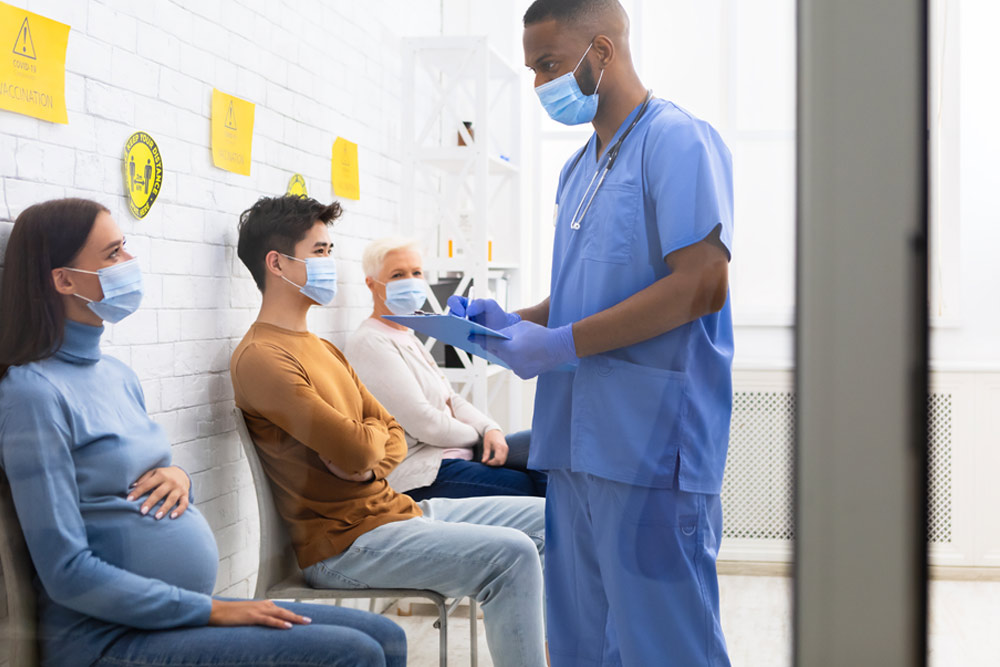COVID-19 and Pregnancy: What to Know

Q: Should pregnant women get a COVID-19 vaccine?
The initial COVID-19 infection seems to be decreasing, but there are new variants, the east coast and the west coast mutations, both moving toward the central part of the United States.
In attempts to vaccinate enough people to establish herd immunity, pregnant women are now being offered vaccination by obstetricians and health care providers. The Vaccine Adverse Reaction Reporting System (VAERS) collects reports of vaccination reactions. In pregnancy, the complication reported involved preterm delivery at 5 to 36 weeks and usually occurred a few days after getting the vaccination. A total of 34 preterm births have been reported. It is important to remember that this reporting system is voluntary, so there is no way of knowing whether there have been unreported incidents of preterm birth from a number of people after vaccination.
Many women do not realize that their immune systems are repressed when they are pregnant in order to protect the baby from the mother’s own immune system. I would advise pregnant women to wait until the third trimester at 35 weeks of pregnancy before receiving a COVID-19 vaccination. The baby is then old enough to survive preterm birth.
The Centers for Disease Control and Prevention (CDC) encourages pregnant women and breastfeeding moms to talk with their OB-GYN if they have questions about the vaccine. Pregnant women are at an increased risk for severe illness from the novel coronavirus, including intensive care (ICU) admission, mechanical ventilation and death. However, the CDC acknowledges there is limited data on the safety of the vaccine for people who are pregnant. Until findings are available from clinical trials and additional studies, it is maintained that getting vaccinated while pregnant (if in the recommended group for vaccination, such as healthcare workers) is a personal decision.
Q: What happens if I get COVID-19 while pregnant?
Most women who test positive for the coronavirus disease during pregnancy will not give COVID-19 to their unborn baby and will not make their baby sick. Researchers have cultured placenta membranes and amniotic fluid of pregnant patients who have COVID-19 during pregnancy and they have found no evidence of the virus in any infected person.
There has been some testing of the COVID-19 vaccine with pregnant women, but much testing is still going on. Pfizer will be testing the safety, tolerability, and immunogenicity in 4,000 pregnant women.
And finally, I’ve said it many times before: Take an extra precaution and get a pulse oximeter. Hypoxemia (a below-normal level of oxygen in your blood) is one of the signs of serious illness with COVID-19. Low blood oxygen levels show up long before shortness of breath or other symptoms of COVID-19. Get a baseline so that you know if something looks off. A baseline for healthy people is 90 or higher. When we see below 90, we start getting concerned.
If you choose to travel, choose safely. For example, you might choose to visit a family member or loved one in a remote rural town with few to no COVID-19 cases, but don’t travel somewhere that you’ll be in close contact with a lot of people and have trouble social distancing.
Masks and cloth face coverings are a subject of much discussion, but for some extra protection when you are going to be around other people, wear a face mask. It’s an additional safety measure that can only help you and your baby.
Q: What should I cover at my next prenatal care appointment concerning COVID-19?
Here are some specific questions to ask your doctor if you are pregnant NOW, during the coronavirus outbreak:







